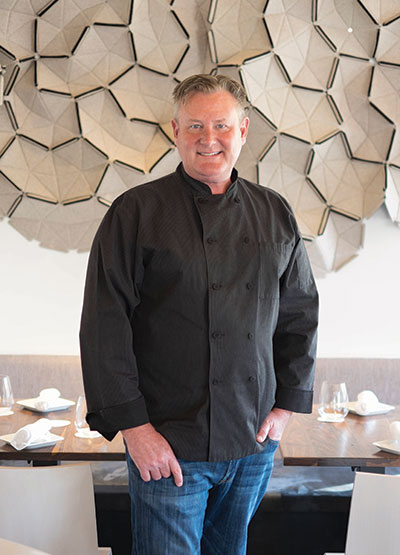Since first learning about the Menil Collection 12 years ago, I’ve hungered for its “spiritual” showcase of art. No admission fee; no public tours; no descriptive plaques. Just the late Dominique and John de Menil’s gift to Houston, housed in a celebrated structure from preeminent museum architect Renzo Piano, of their supreme art collection. It was a feast beyond expectations.
Spanning time and genres, from Byzantine to Pop Art, these treasures are rotated in convention-defying juxtaposition—expressly to invite individual, personal contemplation and interpretation.

Menil Collection
In the tranquility of Piano’s triumphant design, with tall trees and garden atriums integrated in wraparound porticos and the sun dancing through his ingenuous skylight system, I realized the intended effect that had originally inspired the young de Menils of the museum as a place to “lose your head.”
Presently America’s fourth most populated city and closing in on third-place Chicago, Houston may not spring to mind as a place for such swooning interludes. With an expanding footprint that could swallow Boston, Minneapolis, Miami, New York, San Francisco, Seattle, and D.C., just figuring out where to start is a challenge.
Yes, there are vibrant neighborhoods, including gay-hub Montrose and the eclectic Heights, with historic Hermann Park and newly revitalized Buffalo Bayou among the city’s expansive green spaces. Yet, these spread-out districts, some connected by freeways, require wheels and effort to reach.
When Houston launched its celebrity-driven image campaign in 2008, Carol Coletta, then president of nonprofit think tank CEOs for Cities, observed that, “Cities are the hardest branding assignment anyone will ever get. They’re very complex and they have a lot of moving parts.”
With a jumble of nicknames, from Energy Capital of the World to Humidity City, and ten distinct districts in Downtown alone, that’s Sprawl City defined. Like the de Menils with their art, however, it’s a matter of recasting this scale in a different light: see Space City (NASA is here) as an orbit to explore and “lose your head.” For visitors, there’s few better missions than Houston’s fueled and ready culinary constellation.

Bistro Menil Chef Greg Martin
Piloting my gastronomic galaxy quest was publicist and man about town Mark Sullivan, whose Houston network seemed near omniscient as he wheeled us from one coordinate to the next. “What counts in Houston is having ambition, drive, a strong work ethic, and a story to tell,” he said. “This is a city of opportunity.”
Our first bite was at Bistro Menil. Housed on the rebuild of one of the dozens of Arts and Crafts–era bungalows surrounding the Menil Collection (purchased by Dominique de Menil to ward off development while providing affordable housing for artists), the restaurant is the latest from veteran Houston chef-restaurateur Greg Martin.
Seated in the outdoor patio and joined by Houston Chronicle Food Editor Greg Morago, we sampled Martin’s new afternoon tea service. Champagne in hand, it was a demitasse cup of tomato bisque followed by tea tower treats including house-cured salmon finger sandwiches, mini-BLTs, and wild mushroom and walnut pâté crostini, with vanilla creme brûlée and a selection of teas to finish.
Martin, whose husband and business partner Paul Garcia designed elements of the restaurant’s décor, shared iPhone photos of his European escapes.
“My menu is inspired by our continued travels to Spain, France, and Italy, and discovery of classic cuisine in its place of origin,” said Martin, who assisted the prototypical great American chef abroad, Julia Child, on her PBS show Cooking with Master Chefs and accompanying books. “We reinterpret these dishes for our customers, many who share the same travels abroad, paired with our hand-selected wines.”


